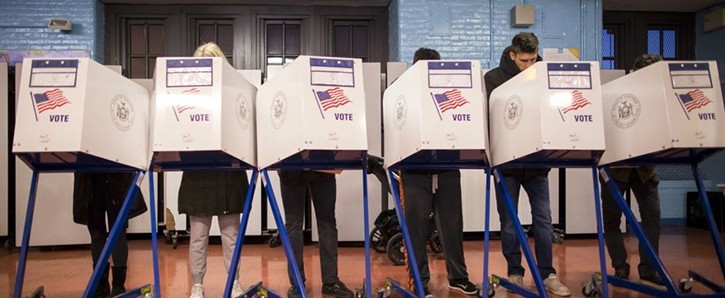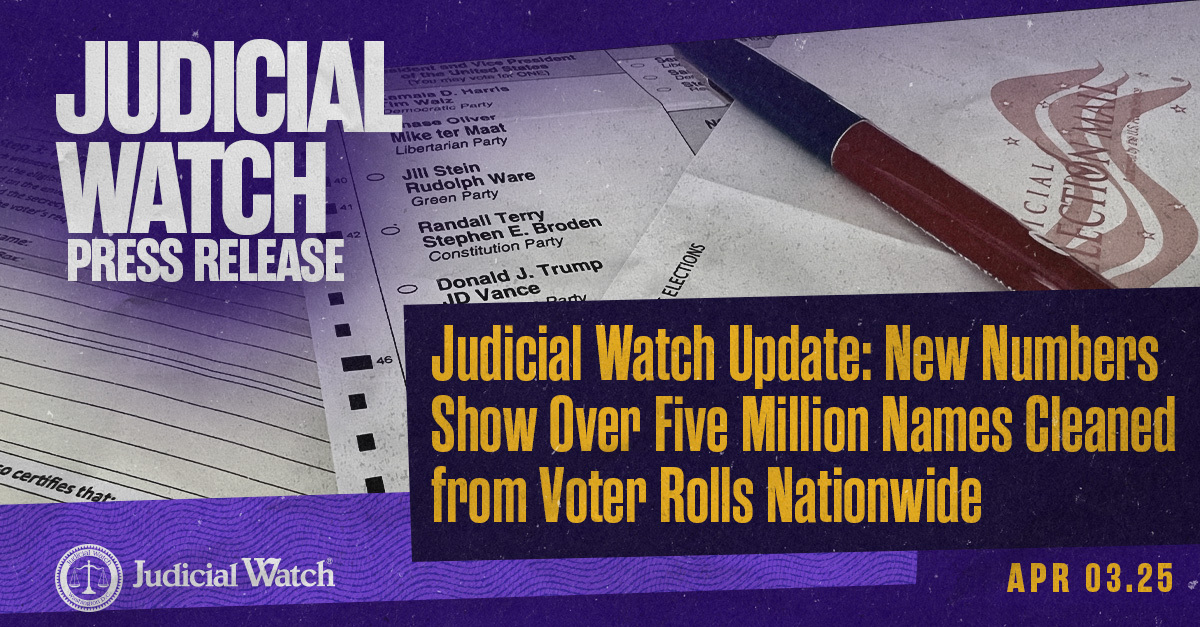
Judicial Watch Sues over California Law Requiring Presidential Candidates Appearing on Primary Ballot to Disclose Tax Returns

(Washington, DC) – Judicial Watch announced today that it filed a federal lawsuit on behalf of four California voters to prevent the California secretary of state from implementing a new state law requiring all presidential candidates who wish to appear on California’s primary ballot to publicly disclose their personal tax returns from the past five years (Jerry Griffin et al. v. Alex Padilla (No. 2:19-cv-01477). The suit alleges that the law unconstitutionally adds a new qualification for candidates for president. Judicial Watch’s clients include a registered Independent, Republican, and Democrat California voter.
Under the law, known as the Presidential Tax Transparency and Accountability Act, candidates who do not publicly disclose their tax returns are barred from having their names printed on California’s primary ballots. Judicial Watch alleges that SB 27 imposes candidate qualifications beyond those allowed by the U.S. Constitution and impermissibly burdens a voters’ expressive constitutional and statutory rights. The lawsuit claims violations of the U.S. Constitution’s Qualifications Clause, the First and Fourteenth Amendments, and 42 U.S.C. § 1983 and 1988.
During the 2017-2018 legislative session, then-Governor Jerry Brown vetoed a previous version of this law, which California’s Legislative Counsel concluded “would be unconstitutional if enacted.” In vetoing the 2017-18 tax return law, Brown noted:
First, it may not be constitutional. Second, it sets a “slippery slope” precedent. Today we require tax returns, but what would be next? Five years of health records? A certified birth certificate? High school report cards? And will these requirements vary depending on which political party is in power? A qualified candidate’s ability to appear on the ballot is fundamental to our democratic system. For that reason, I hesitate to start down a road that well might lead to an ever escalating set of differing state requirements for presidential candidates.
The Judicial Watch complaint further alleges the political nature of the law, which is totally divorced from the states’ legitimate constitutional role in administering and establishing procedures for conducting federal elections:
None of the interests proffered by the California legislature for requiring the disclosure of candidates’ tax returns is related to election procedure or administration. Rather, the stated interests incorporate particular, substantive judgments about what is most important for voters to know when considering a candidate, how voters should go about “estimate[ing] the risk” of a candidate “engaging in corruption,” and what might assist law enforcement in detecting violations of the Emoluments Clause and crimes “such as insider trading.”
***
Unless SB 27 is enjoined, states will assume the power to create their own qualifications for national candidates seeking to obtain a party’s nomination for president. This could lead to as many as 50 distinct and possibly inconsistent sets of qualifications regarding the only national election in the United States. Using rationales similar to California’s, states might come to demand medical records, mental health records, sealed juvenile records, driving records, results of intelligence, aptitude, or personality tests, college applications, Amazon purchases, Google search histories, browsing histories, or Facebook friends.
“California politicians, in their zeal to attack President Trump, passed a law that also unconstitutionally victimizes California voters,” said Judicial Watch President Tom Fitton. “It is an obvious legal issue that a state can’t amend the U.S. Constitution by adding qualifications in order to run for president. The courts can’t stop this abusive law fast enough.”
###
















